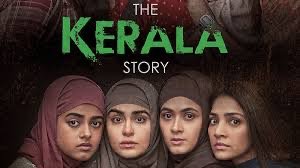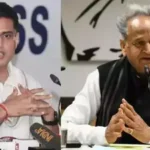Bengal Congress Chief Adhir Ranjan Chowdhury has expressed his criticism towards the controversial film ‘The Kerala Story’, claiming that it has been granted tax-free status in the states of Madhya Pradesh and Uttar Pradesh due to their affiliation with the Bharatiya Janata Party (BJP). Chowdhury suggests that this decision is part of a larger agenda of “divisive politics” pursued by the BJP-led governments in these states. According to the Congress leader, the BJP avoids showcasing films that depict revolutionary personalities of India, instead promoting ‘The Kerala Story’ and ‘The Kashmir Files’ as tax-free movies to further their divisive political motives.
Chowdhury’s remarks shed light on the issue of tax exemption for films and the potential political considerations that may influence such decisions. In India, state governments have the authority to grant tax exemptions to films as a means of promoting cultural, social, or educational objectives. This practice has been in place for many years and aims to encourage the exhibition and dissemination of films that are deemed to have significant value.
The controversy surrounding ‘The Kerala Story’ arises from its subject matter, which allegedly portrays revolutionary personalities. Chowdhury’s argument implies that the BJP-led governments in Madhya Pradesh and Uttar Pradesh deliberately avoid granting tax-free status to films that depict Indian revolutionaries, possibly due to ideological reasons or concerns about the potential impact of such films on public sentiment. Instead, they allegedly choose to promote films like ‘The Kerala Story’ and ‘The Kashmir Files,’ which, according to Chowdhury, may serve their political interests.
However, it is important to note that the decision to grant tax exemptions to films ultimately lies within the jurisdiction of the respective state governments, and various factors influence their choices. These factors can range from cultural considerations to political motives, as alleged by Chowdhury. While it is possible that political calculations may play a role in determining which films receive tax exemptions, it is crucial to consider multiple perspectives and gather evidence before drawing definitive conclusions.
Chowdhury’s comments raise questions about the relationship between politics and cinema in India. Films have long been recognized as a powerful medium for shaping public opinion, and their portrayal of historical events and personalities can have significant implications. The issue of tax exemptions for films becomes a subject of debate when certain narratives or perspectives are favored over others, leading to allegations of bias or manipulation.
Critics argue that the selective granting of tax-free status to films based on political considerations undermines the principles of artistic freedom and expression. They assert that films should be evaluated based on their artistic merit, social relevance, and contribution to public discourse, rather than political affiliations or agendas. Such debates highlight the need for transparency, fairness, and inclusivity in the decision-making process regarding tax exemptions for films.
Adhir Ranjan Chowdhury’s remarks regarding the tax-free status of ‘The Kerala Story’ in Madhya Pradesh and Uttar Pradesh shed light on the intersection of politics and cinema. While his claims suggest a connection between the film’s subject matter and the political motives of the BJP-led governments in these states, it is essential to approach such allegations with caution and gather comprehensive evidence. The issue emphasizes the significance of ensuring transparency, fairness, and artistic freedom in the process of granting tax exemptions to films, promoting a vibrant and diverse film industry that contributes to the cultural and social fabric of the nation.




